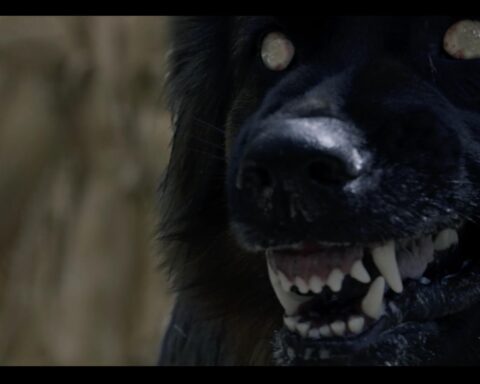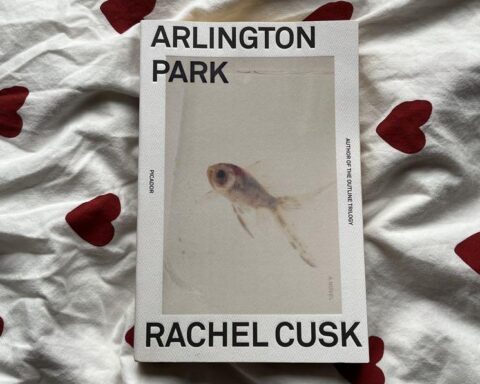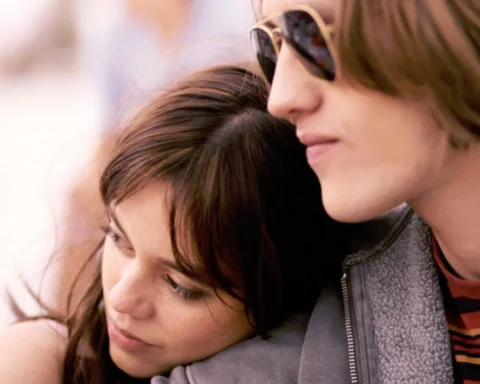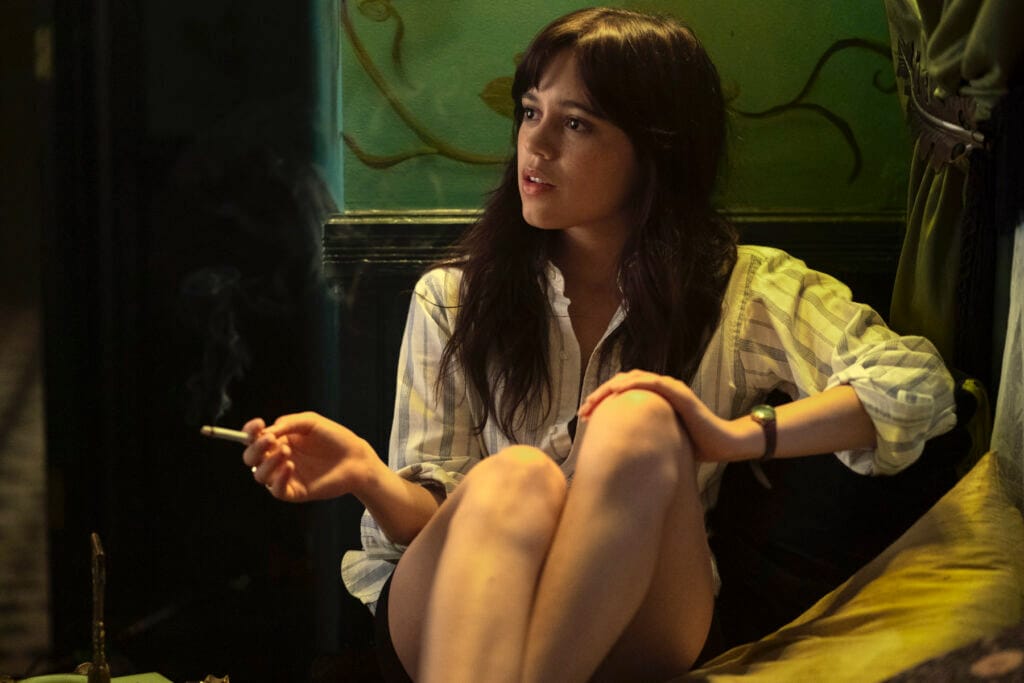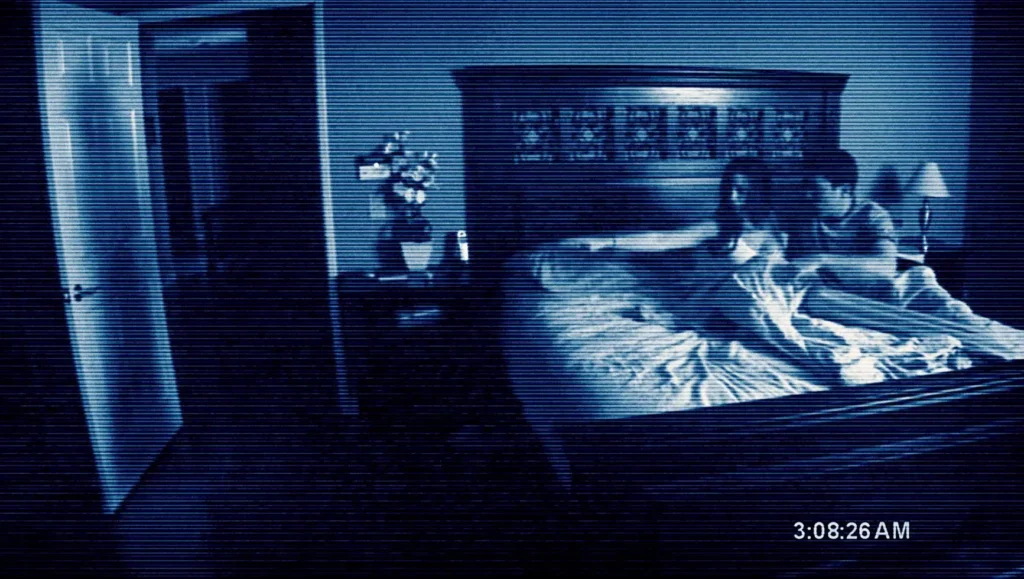Sofia Coppola’s On the Rocks has an unmistakable familiarity to it. It’s the comfort-food movie for anyone who ever felt like the only way to solve a personal crisis was by having a martini and some good company. In Coppola’s latest Apple TV+ film, she once again collaborates with Bill Murray, pairing him with Rashida Jones in a New York City caper that’s part relationship drama, part screwball comedy, and entirely Coppola in its slow-burn charm. It’s a breezy, stylish film, almost deceptively light-hearted—but, like a good cocktail, it has some surprising undertones that give it depth.
Plot Overview: Playing Detective, Reluctantly
The film centers around Laura (Rashida Jones), a writer and mother grappling with a case of writer’s block and the creeping suspicion that her husband, Dean (Marlon Wayans), might be cheating on her. Dean’s new work demands and sudden preoccupations, along with his late nights, fuel Laura’s insecurity. Laura confides in her father, Felix (Bill Murray), a charismatic art dealer and notorious womanizer, who is all too eager to help her investigate Dean’s behavior.
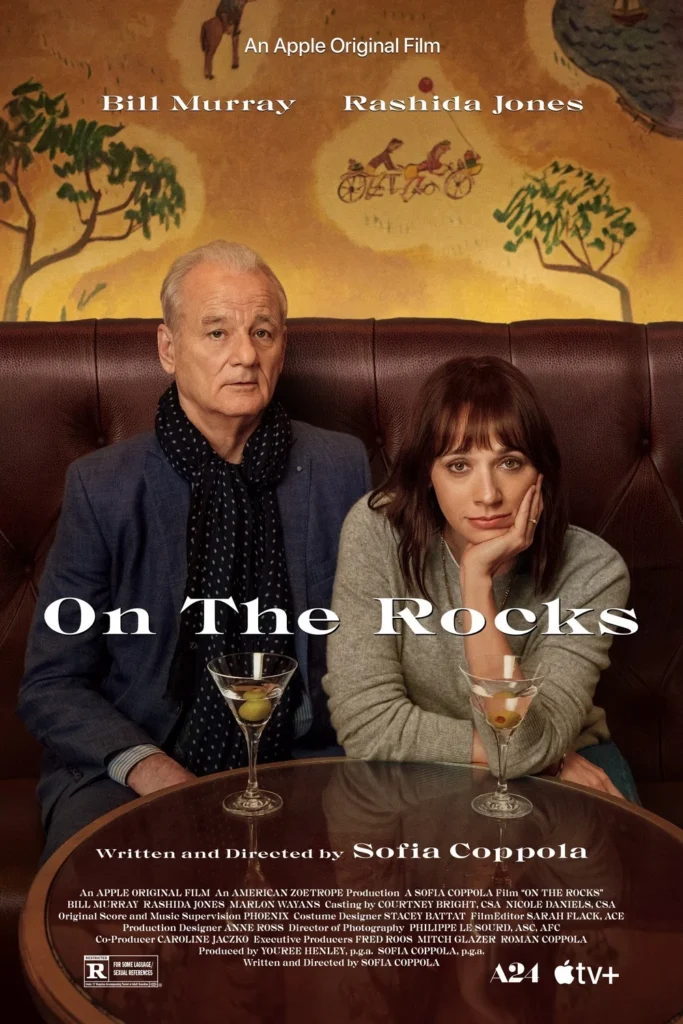
From the moment Felix enters the scene, On the Rocks transforms from a quiet, introspective portrait of an anxious wife to an offbeat, father-daughter adventure through New York’s opulent hotels, restaurants, and even a high-speed car chase through the city streets. Felix’s flamboyance and mischievous charm pull Laura—and the viewer—into an increasingly absurd investigation of Dean’s whereabouts.
Bill Murray: The Ultimate Wingman… or Father?
Let’s start with the obvious: Bill Murray. If Sofia Coppola’s script is the cocktail, Bill Murray is the olive with an inexplicable garnish. There’s something so innately Murray about his performance here. His Felix is a modern-day Gatsby, with a sprinkling of Don Draper and a dose of the elder Peter Pan. He’s a man of considerable sophistication but zero pretension, a mix of boyish charm and world-weary cynicism.
Murray’s Felix is like the devil on Laura’s shoulder, fueling her doubts with his own cynical philosophy. As a father figure, he’s as problematic as he is entertaining. He views monogamy as a societal imposition, believes all men are genetically coded to be unfaithful, and sees women as objects of conquest and intrigue. And yet, there’s an undeniable appeal to his outdated swagger, his lavish lifestyle, and his unfiltered wit. Felix’s beliefs are at odds with Laura’s more modern sensibilities, creating a dynamic that’s both hilarious and poignant. Through their conversations, Coppola taps into a deeper exploration of family dynamics, particularly the way parents shape our understanding of relationships, whether we realize it or not.
Rashida Jones: A Modern Heroine in Crisis
Rashida Jones grounds On the Rocks with a performance that is beautifully understated. Her Laura is at a crossroads, professionally, personally, and emotionally. Jones captures the subtleties of a woman torn between self-doubt and self-assurance. She’s the kind of heroine you want to root for precisely because she’s so relatable. While Laura’s insecurities about her marriage initially appear to be the result of mere overthinking, Felix’s influence adds fuel to her suspicions, creating an engaging tension between what’s real and what’s imagined.
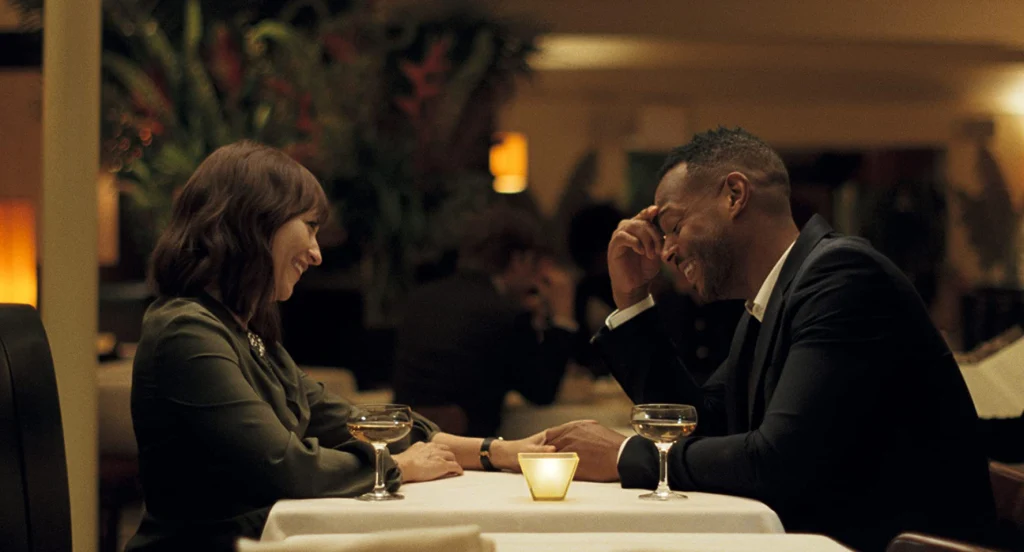
As Laura’s suspicions escalate, Jones subtly conveys a growing realization that the crisis in her life is less about her husband’s loyalty and more about her relationship with herself—and with her father. This subtle character arc is emblematic of Coppola’s brand of storytelling: emotional without being melodramatic, deep without being heavy-handed.
A Beautiful Ode to New York City
New York City, in all its splendor and sophistication, plays a starring role in On the Rocks. This isn’t the gritty New York of so many films; instead, Coppola presents the city as a playground for the well-heeled and well-connected. The film’s New York is full of glossy surfaces, swanky hotel bars, dimly lit jazz clubs, and streets that glisten under streetlamps. You can practically smell the expensive perfume and hear the faint clinking of crystal glasses.
It’s a highly stylized, almost dreamy version of the city—a throwback to an era of elegance. Coppola uses this setting to underscore Felix’s old-world charm and his philosophies on life, love, and loyalty. The places they visit evoke a bygone era where men and women dressed up for dinner, and social interaction wasn’t diluted by the constant buzzing of smartphones.
For those who love a strong sense of place in their films, On the Rocks delivers in spades. The film is like a love letter to the side of New York that feels untouched by time, the kind of place where someone like Felix thrives and where someone like Laura can’t help but feel a bit out of place.
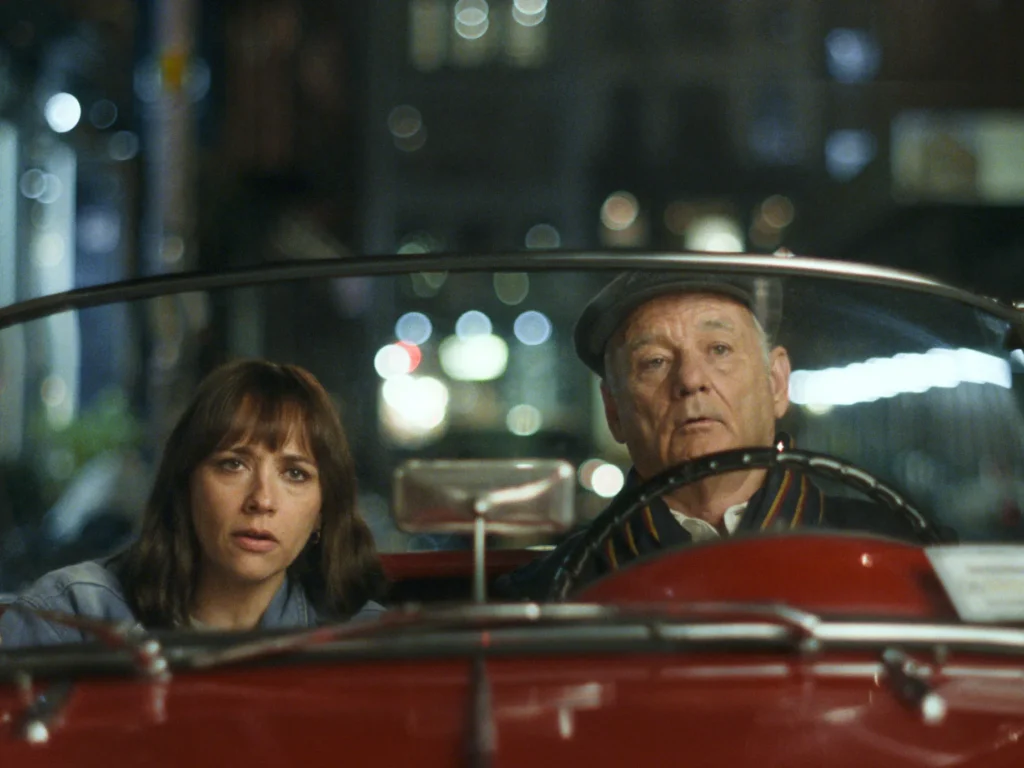
Father-Daughter Dynamics: Comedy and Catharsis
Much of the film’s success lies in the chemistry between Murray and Jones. The way they play off each other feels effortless. Their conversations oscillate between genuine warmth and exasperated humor, as Laura tolerates her father’s antics with a blend of amusement and quiet frustration. There’s an underlying tension in their exchanges that hints at unresolved conflicts, especially regarding how Felix’s behavior has shaped Laura’s views on relationships.
In a lot of ways, On the Rocks is less a film about romantic suspicion than it is about family relationships. Laura’s search for reassurance from Felix mirrors a universal quest for parental approval and support. But what makes Coppola’s take so fresh is the way she balances this with humor. The comedic tone never undercuts the emotional weight but rather enriches it, as we watch a father and daughter confront their own limitations and histories together.
What It Says About Love, Faith, and Growing Up
Coppola has always had a gift for crafting characters who are quietly searching for something, whether it’s meaning, love, or simply a sense of belonging. In On the Rocks, that search is a little less existential and a bit more practical, but no less profound. The film subtly raises questions about love and trust, loyalty and faith—not just in a partner but in ourselves and those closest to us. Laura’s journey is one of reconciling her fears, not just about her marriage but also about her relationship with her father.
There’s a beautifully bittersweet message here: the realization that our parents, no matter how charming or wise they seem, are flawed human beings. Laura’s suspicion of Dean is fueled less by Dean’s actual behavior and more by her father’s lingering influence on her perception of men. The film never spells this out explicitly, but it’s there in the quiet glances, the awkward silences, and the final acceptance that while we can love our parents, we don’t have to accept their worldview as our own.
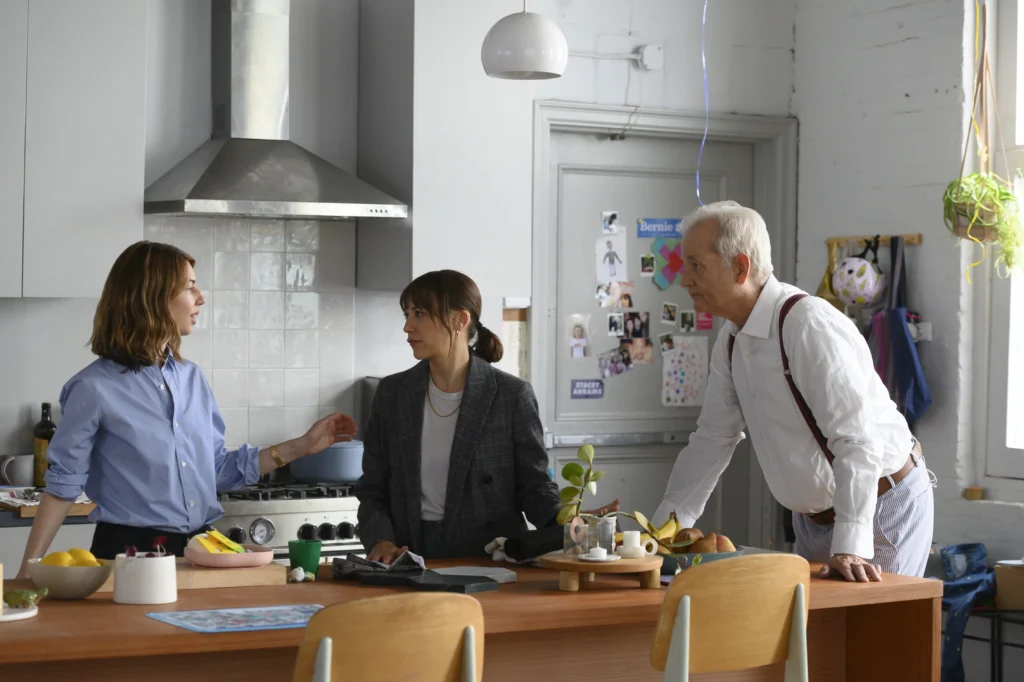
A Lighthearted Comedy That Lingers
If you’re looking for a high-stakes drama or a dark examination of marital fidelity, On the Rocks might feel a bit too light, even trivial. But that’s missing the point. The film is like the perfect martini: crisp, refreshing, and with just the right amount of bitterness to keep it interesting. It’s less about the plot and more about the characters, the mood, and the sharp, witty dialogue. Coppola’s restrained approach to the storyline allows the characters’ relationships to shine through, unencumbered by melodrama or contrived tension.
On the Rocks is not a film that beats you over the head with big revelations or grand resolutions. Instead, it’s a slice of life—a beautiful, poignant, and funny look at a woman learning to trust herself, flaws and all, and a father learning to, perhaps, let his daughter go. The ending is as understated as the rest of the film, leaving us with a sense of quiet satisfaction.
A Martini for the Soul
In the end, On the Rocks is a delightful exploration of family, marriage, and personal growth. With a light touch and an eye for detail, Sofia Coppola delivers a film that feels both timely and timeless. Bill Murray’s performance is a masterclass in charm, Rashida Jones brings a refreshing authenticity, and together they create a chemistry that is both comic and cathartic.
It’s a film that pairs well with a night in, a cozy blanket, and perhaps a cocktail or two. On the Rocks isn’t here to change the world, but it might just remind you to check in with yourself and enjoy the ride—preferably in good company.

